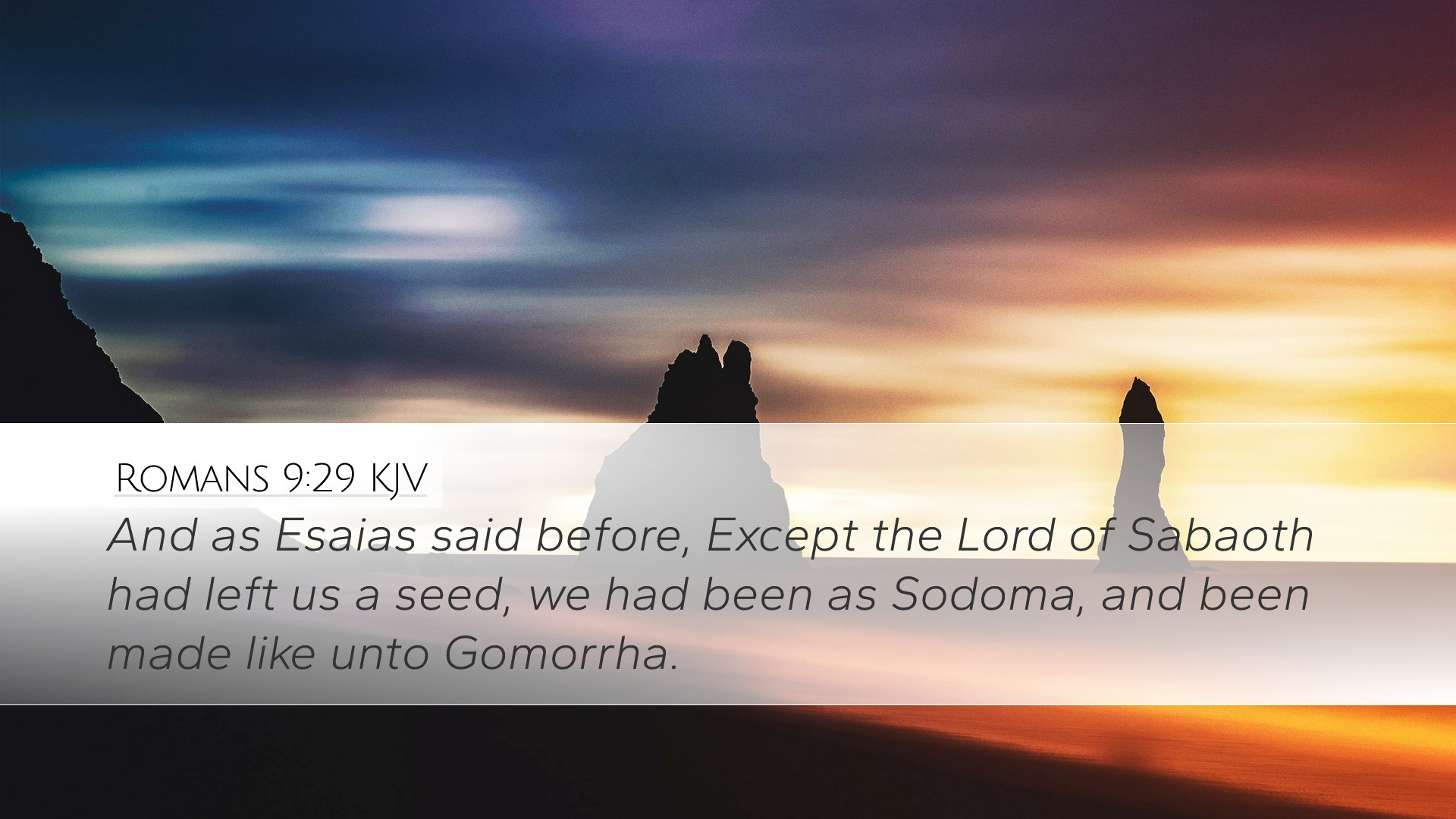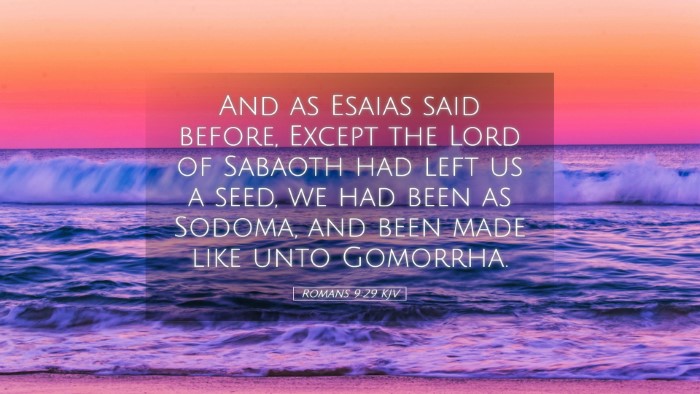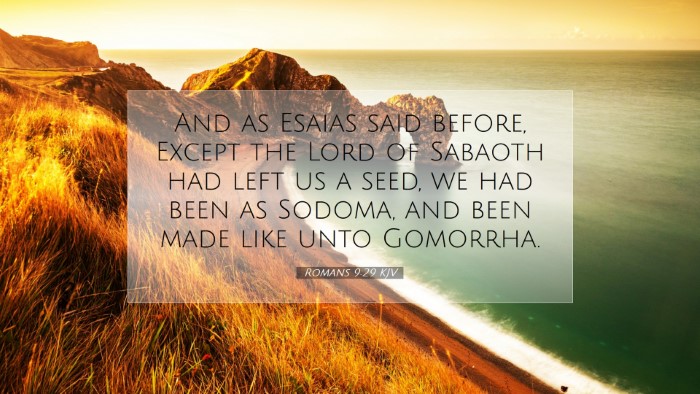Commentary on Romans 9:29
Romans 9:29 states: "And as Isaiah said before, Except the Lord of Sabaoth had left us a seed, we had been as Sodoma, and been made like unto Gomorrha." This verse is rich in theological significance, echoing themes of divine mercy, judgment, and the remnant of Israel. Below is a compilation of insights from public domain commentaries to enhance our understanding of this passage.
Historical Context
Polemic in nature, Romans 9 addresses the sovereignty of God in the salvation of Israel amidst the apparent failure of the Jewish people to accept Christ. This verse draws from Isaiah 1:9, where the prophetic voice speaks of a remnant that God preserves through grace.
The Lord of Sabaoth
Albert Barnes elucidates that "the Lord of Sabaoth" refers to the God of hosts, emphasizing His authority and power over all creation. The term "Sabaoth" highlights God's military prowess and His ability to protect and preserve His chosen ones. This underscores the idea that God's mercy is vital for the survival of His people.
Importance of the Remnant
Matthew Henry notes the theological concept of the remnant—those who remain loyal to God amidst a majority that turns away. This idea suggests that even when the populace is unfaithful, God preserves a little seed to carry forward His purposes. The comparison to Sodom and Gomorrah serves as a sobering reminder of judgment that befalls the unfaithful.
Divine Mercy and Judgment
Adam Clarke highlights the duality of God's nature reflected in this passage. God is not only a righteous judge but also a merciful Savior. From the ashes of judgment on the wicked, He raises a remnant, illustrating His covenant faithfulness. Without His intervention, the faithful would have perished alongside the unfaithful, just as Sodom and Gomorrah did.
Theological Implications
-
Grace of God:
The preservation of a remnant is a testament to grace. It emphasizes that salvation is not by works but is a sovereign act of God. The phrase "except the Lord" implies that all humanity would be lost without divine intervention.
-
Judicial Hardening:
This passage also touches on the theme of judicial hardening, where God allows some to pursue their sinful desires, resulting in their ultimate condemnation. The contrast between the remnant and those judged reflects God's justice and mercy intertwined.
-
Call to the Gentiles:
As Paul discusses the remnant, he moves toward exploring God's grace extended to Gentiles, portraying a broader vision of redemption that includes all who believe in Christ, regardless of their background.
Practical Applications
For pastors and theologians, Romans 9:29 serves as a powerful reminder of God's fidelity to His promises. It challenges the church to be a faithful remnant in a secular world. Believers are encouraged to embrace their identity as part of the preserved seed—living witnesses of God's salvation.
Encouragement for Believers
This verse affirms the hope believers can have in times of societal decline. Just as God preserved a remnant in Isaiah's day, He continues to uphold His people today amid spiritual and moral decay. The promise of preservation offers solace and strengthens resolve to remain faithful.
Teaching Moments
In teaching contexts, this passage can be used to illustrate God's character—combining justice with mercy. It invites deep reflection on the seriousness of sin while also celebrating the profound grace found in Christ. Pastors may use this scripture to call congregations to faithfulness, reminding them of the importance of remaining a light in darkness.
Conclusion
Romans 9:29 encapsulates key themes of divine judgment and mercy, encapsulated in the preservation of a faithful remnant. The commentaries from Henry, Barnes, and Clarke richly contribute to the understanding of this verse, offering valuable insights into God's sovereign grace and His unwavering commitment to His people. The passage stands as a beacon of hope, reminding believers of God's active role in salvation history and the importance of faithfulness in challenging times.


